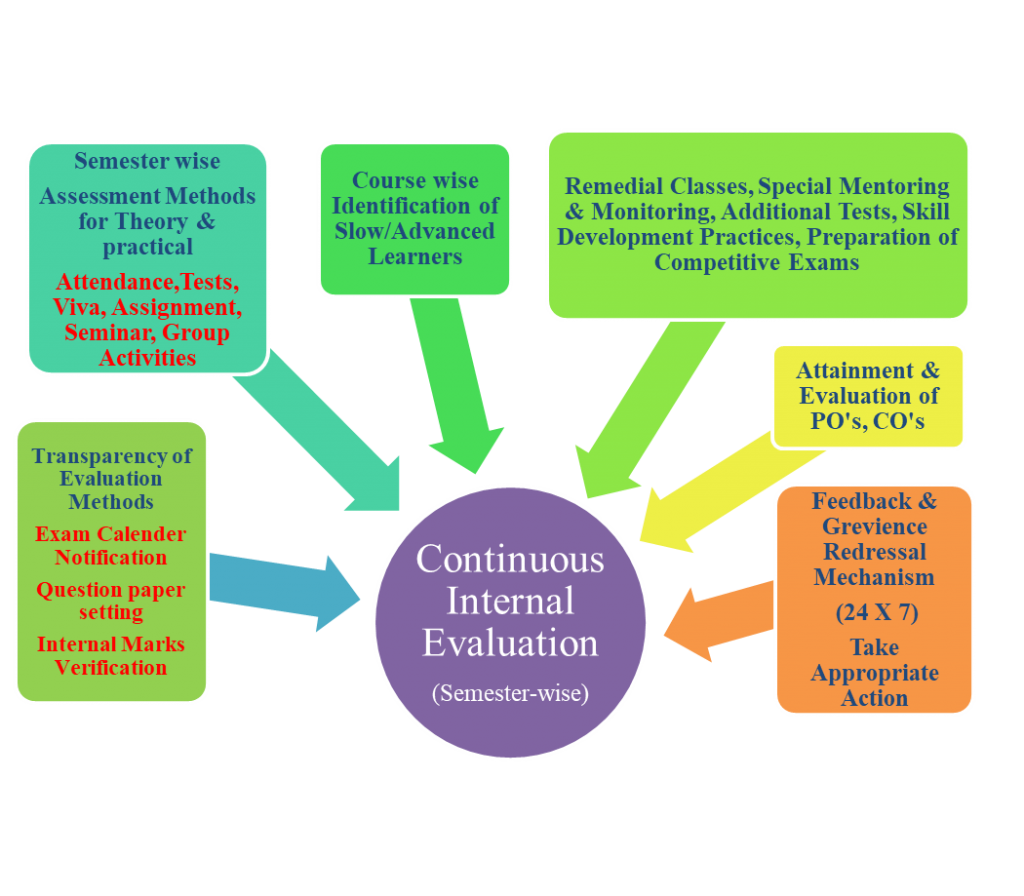- Home
- /
- Academics
- /
- Examinations
- /
- Internal Examinations
Conduct of Continuous Internal Evaluation (CIE)
An academic calendar for the conduct of programmes/activities is published by SNM College well in advance of the start of academic year. Important dates like the start of the semester, the last day of work, celebrations of international days, internal examination schedule and the dates for practical and theoretical University examinations, and the date that the following semester will begin/end are all shown based on the university calendar.
The IQAC creates the academic calendar for the Institute while taking into account the rules set forth by the University, which cover all activities such as the execution of Continuous Internal Evaluation (CIE), End Semester Examination, Certificate/Value Added Courses, and Placement Activities.
The department’s events are created in full compliance with the college academic calendar to accommodate all planned activities. The department calendar lists seminars, conferences, workshops, industrial visits, and other co-curricular and extracurricular activities planned by the respective departments, while the institute calendar includes information about the total number of working days and holidays, CIE dates, institutes flagship programmes, etc.
The aforementioned academic calendars, which are available on the college website, notice boards, and prospectus, assist faculty members in organizing their individual course delivery and other relevant activities. Head of the Department is responsible for completion of the curriculum in accordance with the lesson plan created by the faculty. Faculty members are required to adhere to the portions that have been predetermined for each CIE.

Components of the CIE system:
Grievance Redressal Mechanism:
The institution is keen to address grievances related to internal evaluation. The grievances are classified and take appropriate action.
Transparency of Internal Evaluation Process: